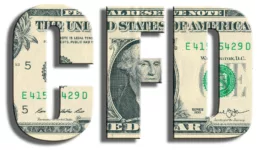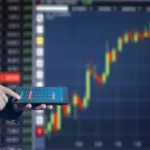CFDs, forex trading: what’s the difference? It’s easy to get confused when discussing the two as a new trader, but there are major differences among the two. If you’re a trader that is abandoning binary options, an industry filled with fraud, CFDs and forex are a natural transition point.
What are CFDs?
Contracts for differences, CFDs for short, is a tradable instrument. The instrument has an asset underlying it, and the trader’s focus will be on this asset. Depending on the trader’s position taken, the asset may be a profit or a loss.
What’s important to know is that you never actually own the underlying asset.
You’re forming a contract between:
- Clients
- Brokers
CFDs have become a popular trading option in recent years. Let’s assume the underlying asset is a stock with a price of $20 a share. If the contract is for 10 shares, a broker will often ask for a 50% margin, or $100 to make the contract.
But a CFD broker may require a 5% margin, so you’ll only need a $10 cash outlay.
Positions will be a loss of the spread’s size when a trade is entered. CFDs are beneficial because they provide more leverage for the trader than traditional trading methods. The underlying asset will dictate the standard leverage of the CFD, which can be 2% – 20% in many cases.
Lower margins equal less capital required for the outlay.
CFDs offer numerous trading options, such as:
- Currency
- Commodity
- Index
- Stock
- Treasury
Make note that currency CFDs are available, so this is much like forex trading with a few differences outlined below.
What is Forex Trading?
Investopedia has a great resource on forex trading, but before you dive in, it’s important to know what forex trading is. Forex is simple: it’s the trading of currencies. Forex occurs on the foreign exchange market, or the place wherein the currencies are traded.
Currencies are vital to the world, and currencies are required in foreign trade and business.
Say, for example, you want to purchase an item from Italy and you live in the United States. If this is the case, you’ll need to pay for your item in euros (EUR). And in this case, there is a price difference between the dollar (USD) and the (EUR).
This same exchange of currencies occurs across the world.
Trillions of dollars are exchanged per day, making forex the leading liquid financial market on the planet. There is no central marketplace for exchanges. This allows for trading to occur 24 hours a day for over five days per week.
You can trade with:
- Spot market
- Forwards markets
- Future markets
Forex is a well-established, regulated industry that provides confidence when making trades. You can start trading in forex at any time, and while complex to the beginner, it’s a form of trading that is long-term.
Differences Between CFDs and Forex
If you’re scratching your head wondering what the difference is between CFDs and forex, the main difference you need to know is that CFDs involves different markets. When you choose CFDs, you’re entering into contracts for: stocks, indexes, treasury, commodities or currencies.
You can enter a contract for metals or energy if you want.
Forex is only the trading of currency. When you engage in forex trading, you’ll be dealing with a currency pairing and not a stock or index. This is a great option for a person who knows currency markets well and has a pulse on the industry.
CFDs, while advantageous in many cases, can include vast instruments, so they’re more complex than basic forex trading.
The CFD contract also includes the option to select:
- Different currency types
- Different contracts
- Increment values
Supply and demand are a major factor when trading CFDs, but with currency, there is less of a concern with supply and demand. Trillions of foreign exchange dollars are exchanged daily, so there is never a shortage in this department.
Global events, such as political uncertainty, sway foreign exchange markets more than CFDs.
And if you’re a new trader, it may be beneficial to choose either forex or CFDs – not both. The majority of brokers will provide options to engage in both forex and CFD trading, so you can often test the waters with both investments to find which one you prefer.








